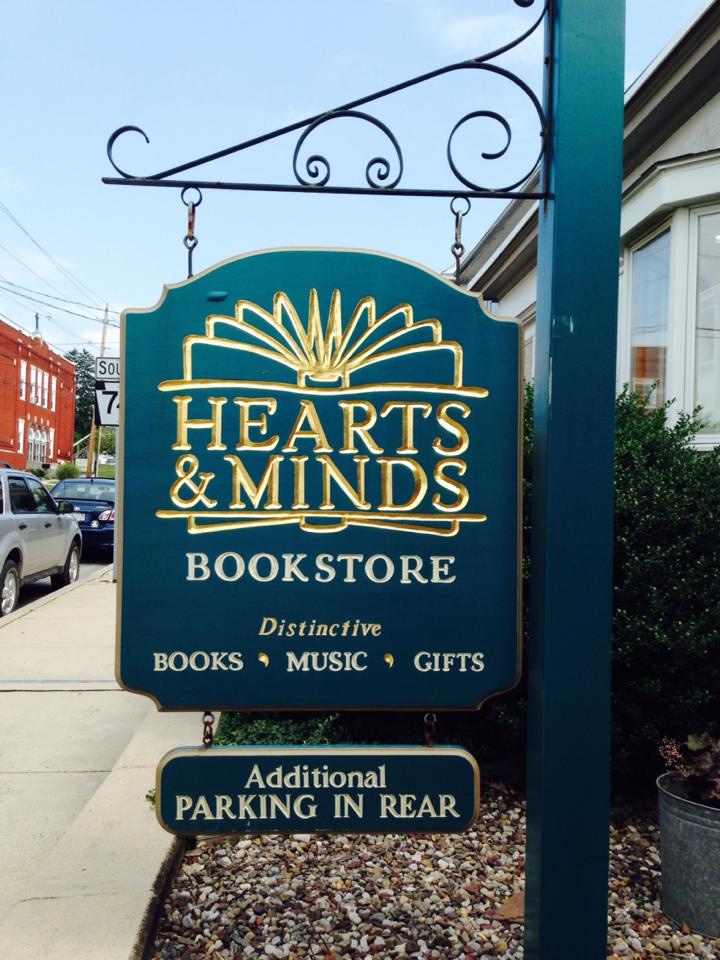 Like any good bookstore, we have all kinds of books, shelves in dozens of categories. Gardening, fiction, history, addiction recovery, film studies, engineering; we’ve got YA novels, cultural criticism, cookbooks, architecture, outdoor recreation, health, grief, and kid’s picture books galore. We stand ready as a full service bookstore to help you with almost anything you may ever want — just use our inquiry page at the website, or give us a call. See a review somewhere or hear an author on Fresh Air or 1A? Chances are we might be getting it in. Heard somebody reference a novel or prayer book? Give us a shout if we can help.
Like any good bookstore, we have all kinds of books, shelves in dozens of categories. Gardening, fiction, history, addiction recovery, film studies, engineering; we’ve got YA novels, cultural criticism, cookbooks, architecture, outdoor recreation, health, grief, and kid’s picture books galore. We stand ready as a full service bookstore to help you with almost anything you may ever want — just use our inquiry page at the website, or give us a call. See a review somewhere or hear an author on Fresh Air or 1A? Chances are we might be getting it in. Heard somebody reference a novel or prayer book? Give us a shout if we can help.
I suppose one of our largest sections in the store, some of our bread and butter, as they say, includes books on growing as a Christian, deepening one’s discipleship, enlarging the spirituality of one’s heart and mind. We carry academic theology and lots of resources for congregational life, worship planning, youth ministry, and the like, but, still, books that offer rather basic Christian growth remain a vital part of what our customers are looking for. But even here, folks tell us we are a bit different than many Christian bookstores. We try to avoid those that are too simplistic or cheesy, and stock books from a variety of theological perspectives or faith styles. These sorts of books are designed to help you flourish, to relate faith to real life issues, to bring together, as we sometimes say, the Bible and life. Some are straight up Christian teaching which others might come as cleverly worded stories; some are youngish and hip, others pretty much no-nonsense.
Maybe here after Easter you might do well to read or re-read an old classic from your book shelf or church library about the cost of discipleship or ordinary Christian growth. Ask your pastor or mentor or a Christian leader you admire for suggestions. They should be able to advise you, finding something just right for your taste, your spiritual maturity, your level of interest, your life issues and setting.
And, if you’re up for it, maybe you can pass something on to a younger Christian, another person you know who might be in need of some Biblical wisdom, some faith-based assistance, a book to accompany them in their journey with God in life. Believe me we have moving conversations about this sort of stuff with folks in the shop (and on line) every day. There is a hunger out there for good books that are a bit more than the simple teachings they are used to, something beyond the predictable and blase, but accessible and sound.
Some older religious books, of course – good as they are – are a bit more demanding and a little less fun than they ought to be. If you are looking for something fresh, insightful, helpful, here are ten new ones to help you on your way.
TEN NEW BOOKS FOR CHRISTIAN GROWTH
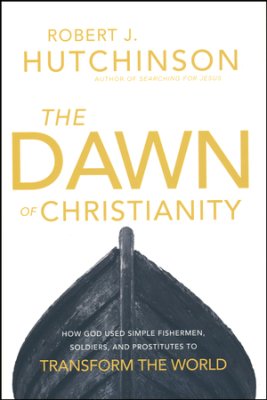 The Dawn of Christianity: How God Used Simple Fisherman, Soldiers, and Prostitutes to Transform the World Robert Hutchinson (Thomas Nelson) $24.99 Let’s start here – at the time of rise of Christianity, right after the resurrection of Christ. What a great time of year to dive into the fabulously interesting book which draws on the most recent discoveries and scholarship in archaeology of the first-century Near East. Hutchinson (who studied Hebrew in Israel and has an advanced degree in New Testament) asks “How did a beleaguered group of followers of a crucified rabbis become the founders of a world-changing faith?” Using both Christian and secular scholars, Hutchinson reconstructs these post-resurrection accounts, tells about the persecution of the earliest church (at the hands of, for instance, a religious terrorist named Saul of Tarsus) and shows how they thrived as the gospel moved from Antioch, Damascus to Athens and Rome. From ancient writers like Josephus and Philo and Eusebius to 20th century titans like J. Gresham Machen, N.T. Wright, Rodney Stark, John Dominic Crossan, Martin Hengel, Ben Witherington and more, Hutchinson weaves a narrative that is so interesting, informative and inspiring.
The Dawn of Christianity: How God Used Simple Fisherman, Soldiers, and Prostitutes to Transform the World Robert Hutchinson (Thomas Nelson) $24.99 Let’s start here – at the time of rise of Christianity, right after the resurrection of Christ. What a great time of year to dive into the fabulously interesting book which draws on the most recent discoveries and scholarship in archaeology of the first-century Near East. Hutchinson (who studied Hebrew in Israel and has an advanced degree in New Testament) asks “How did a beleaguered group of followers of a crucified rabbis become the founders of a world-changing faith?” Using both Christian and secular scholars, Hutchinson reconstructs these post-resurrection accounts, tells about the persecution of the earliest church (at the hands of, for instance, a religious terrorist named Saul of Tarsus) and shows how they thrived as the gospel moved from Antioch, Damascus to Athens and Rome. From ancient writers like Josephus and Philo and Eusebius to 20th century titans like J. Gresham Machen, N.T. Wright, Rodney Stark, John Dominic Crossan, Martin Hengel, Ben Witherington and more, Hutchinson weaves a narrative that is so interesting, informative and inspiring.
I think if you have any interest in the New Testament (the gospels, Acts, and the Epistles) and the history of that era, you will love this tremendous account of how it all took hold, spread, struggled, and became a transforming force in Western history. There are references to the Dead Sea Scrolls and the gnostic gospels and fascinating historical stuff but don’t be fooled — this is a page-turning tour de force, an enjoyable and informative read. There’s is a timeline in the back and pictures throughout making this a really helpful volume. Highly recommended.
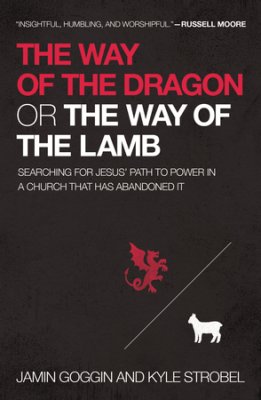 The Way of the Dragon or the Way of the Lamb? Searching for Jesus’s Path of Power in a Church That Has Abandoned It Jamin Goggin & Kyle Strobel (Nelson Books) $16.99 I have mentioned this before but want to suggest it again. There are oodles of basic Christian growth sorts of resources that help us in our interior lives, our understanding of the faith, books that strengthen our resolve to live well in the world. But few take seriously the fallen nature of our messed up world, the seductions and dysfunctions that surround us, and those that do often are very scholarly, or utterly pessimistic. (God bless Jacque Ellul, if you get my drift.) I benefited immensely from reading about this topic of how we should think about power and fallen institutions years ago – I recall the little book by Berkof called Christ and the Powers and a really important book by Marva Dawn which offered some friendly critique to Walter Wink and his impressive work on the principalities and powers. There is not enough discussion about this in most churches, not enough about what these authors call “The Way of the Dragon” let alone enough about the radical nature of Christ’s “Way of the Lamb.” Andy Crouch, of course, has written very wisely about power in Playing God and even in the his must-read book from a year ago, the brief Strong and Weak. There are many authors who write about Biblical nonviolence but, as much as I appreciate them, they somehow seem disconnected to the lives of ordinary middle class folks making their way through their typical lives.
The Way of the Dragon or the Way of the Lamb? Searching for Jesus’s Path of Power in a Church That Has Abandoned It Jamin Goggin & Kyle Strobel (Nelson Books) $16.99 I have mentioned this before but want to suggest it again. There are oodles of basic Christian growth sorts of resources that help us in our interior lives, our understanding of the faith, books that strengthen our resolve to live well in the world. But few take seriously the fallen nature of our messed up world, the seductions and dysfunctions that surround us, and those that do often are very scholarly, or utterly pessimistic. (God bless Jacque Ellul, if you get my drift.) I benefited immensely from reading about this topic of how we should think about power and fallen institutions years ago – I recall the little book by Berkof called Christ and the Powers and a really important book by Marva Dawn which offered some friendly critique to Walter Wink and his impressive work on the principalities and powers. There is not enough discussion about this in most churches, not enough about what these authors call “The Way of the Dragon” let alone enough about the radical nature of Christ’s “Way of the Lamb.” Andy Crouch, of course, has written very wisely about power in Playing God and even in the his must-read book from a year ago, the brief Strong and Weak. There are many authors who write about Biblical nonviolence but, as much as I appreciate them, they somehow seem disconnected to the lives of ordinary middle class folks making their way through their typical lives.
But this. Wow, this is a book for our times, a needed supplement to your diet, a radical, Biblical, balanced, wise, and potent resource for figuring out how to relate to power, to status, to success, to be on guard about the devious ways of the world. This theologian/pastor team draw on authors we admire — J. I. Packer, Dallas Willard, Marva Dawn, John Perkins, Jean Vanier, James Houston, Eugene Peterson — to help you travel better on the path of Christian discipleship.
This is, I’ll admit it, is a book about weakness; the Way of the Lamb. I know, you probably aren’t searching BookNotes thinking “I want a book about being broken, weak, giving up my dreams of making a difference.” (Although, many have read and greatly appreciated the artful reflection The Broken Way by Ann Voskamp. That is a good sign.) Perhaps, though, you do want a book to deepen your discipleship in ways that are consistent with our Risen Lord (the reigning King whose departing speech was a mandate to serve.) Perhaps you tire of the louder voices from the church and world that too often push us to false ideals, pushy ways, that erode the gospel call to love, humility, kindness. Perhaps you are seeking insight that goes beyond the typical evangelical cliches.
These two are very interesting writers and I admire them. They mean it when they say, “We want to cast a vision for the Christian life according to Jesus’ way of power: power in weakness, for love.” As Goggin put it, they hope their book will help to help create “individuals with real Kingdom depth.” And as they searched for elders who could help them learn about this they found “the most holy, wise, and powerful people we have ever met.” Don’t you want to meet and know and learn from people that could be so described?
In an interview about The Way of the Dragon or the Way of the Lamb? Strobel (yes, the Jonathan Edwards scholar, and son of Lee Strobel) said:
We are called to be a people of power, certainly, but a kind of power completely opposite to the power of the world. So what does it mean to employ the power of Christ. What happens when the power of Christ comes head-to-head with the power of evil, even in our churches? These are the questions that drove us to explore the world and document our travels…
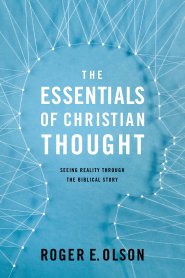 The Essentials of Christian Thought: Seeing the World Through the Biblical Story Roger E. Olson (Zondervan) $18.99 You probably know that we believe that one of the best things to read for living Christianly in the world, books that can help us grow in our faith, are what we sometimes call “worldview books.” Daily discipleship and basic Christian growth resources are best framed by the big picture of a Christian view of life and an overview of the redemptive story that unfolds in the great drama of the Bible. This book does just that and it is fantastic!
The Essentials of Christian Thought: Seeing the World Through the Biblical Story Roger E. Olson (Zondervan) $18.99 You probably know that we believe that one of the best things to read for living Christianly in the world, books that can help us grow in our faith, are what we sometimes call “worldview books.” Daily discipleship and basic Christian growth resources are best framed by the big picture of a Christian view of life and an overview of the redemptive story that unfolds in the great drama of the Bible. This book does just that and it is fantastic!
As it says on the back cover of my advanced promo copy, “Christians disagree on doctrine, politics, church government, certain moral questions – just about everything under the sun, it can seem. Yet a unity remains, centered around a core outlook on God and the world that is common to all believers.”
Well, I don’t know if that is even true – we should find unity, and that is the burden of this excellent new book. As the promo copy continues, “Alternative visions of reality often infect and corrupt Christian’s thinking.”
I couldn’t agree more, even if putting it that way sounds a bit alarming. Just like the dumb comment from a certain political spokesperson on “alternative facts” taints our civic engagement, now, unbiblical ways of construing life, thinking about ordinary stuff — God, the world, ourselves, what matters most — damages our faith, cripples our discipleship and our way of relating faith and life.
This book (written by an imminent theologian and church historian) gives us a basic perspective on life and times, noting how the Bible story itself should inform and shape our ideas and practices about daily life.
This may be a bit heady for some – it is about what the philosophers call metaphysics, after all. Meta is big these days, though, and this book is really useful to help us get the big picture.
Contemporary Western society is awash in competing visions of ultimate reality. Christians who do not know any better often absorb beliefs about reality from worldviews completely alien to the Bible and in radical conflict with it. This is known as after all. Meta is big these days, and this book is really useful to help us get the big picture.
Listen to Olsen:
Contemporary Western society is awash in competing visions of ultimate reality. Christians who do not know any better often absorb beliefs about reality from worldviews completely alien to the Bible and in radical conflict with it. This is known as syncretism. There is both conscious and unconscious syncretism.
He continues to explain that sometimes we unknowingly buy into ways of thinking, talking, acting, that are inconsistent with general assumptions and ways of seeing taught by the Bible. Other times we knowingly borrow from ideas that are foreign to the Bible’s narrative. (Uh, think of the oxymoronic statements like “the Christian right” or “the Christian left” that we hear often these days as if these historically-developed, secular ideologies can be simply baptized with religiosity.)
The Essentials of Christian Thought: Seeing Realty… is meaty, but not scholarly, really. It is not mostly for academics, philosopher or even pastors, but for all educated believers. I do believe all of us need this kind of thinking -especially if we want to live out our discipleship in the world of public life, work and culture and entertainment and science and business. It is particularly important for educators, and a must-have resource for any teacher at a Christian high school or college.
With chapters with titles helping us to be “Knowing Christianly: Seeing Reality through the Biblical Story” and reminding us that “Ultimate Reality Is Supernatural and Personal (But Not Human)” and that a “Biblical-Christian Perspective on the World” can lead us to a “Christian Humanism”, you know this is important stuff to slowly, seriously ponder. I might quibble with a bit here or there — I’m just not fond of the lingo of “ultimate” reality. Realty is the really real, and creation is just as real as is God, so I don’t quite get all that he proposes here. I’ve got to study more. But maybe you do, too. How long have you been a follower of Jesus? Do you really deeply know, as the Bible story shows, how to think about all of life as real and redeemed? Do you see and understand and construe all of life through the lens of the Bible story itself? If you want a model for the integration of faith and thinking, this will help.
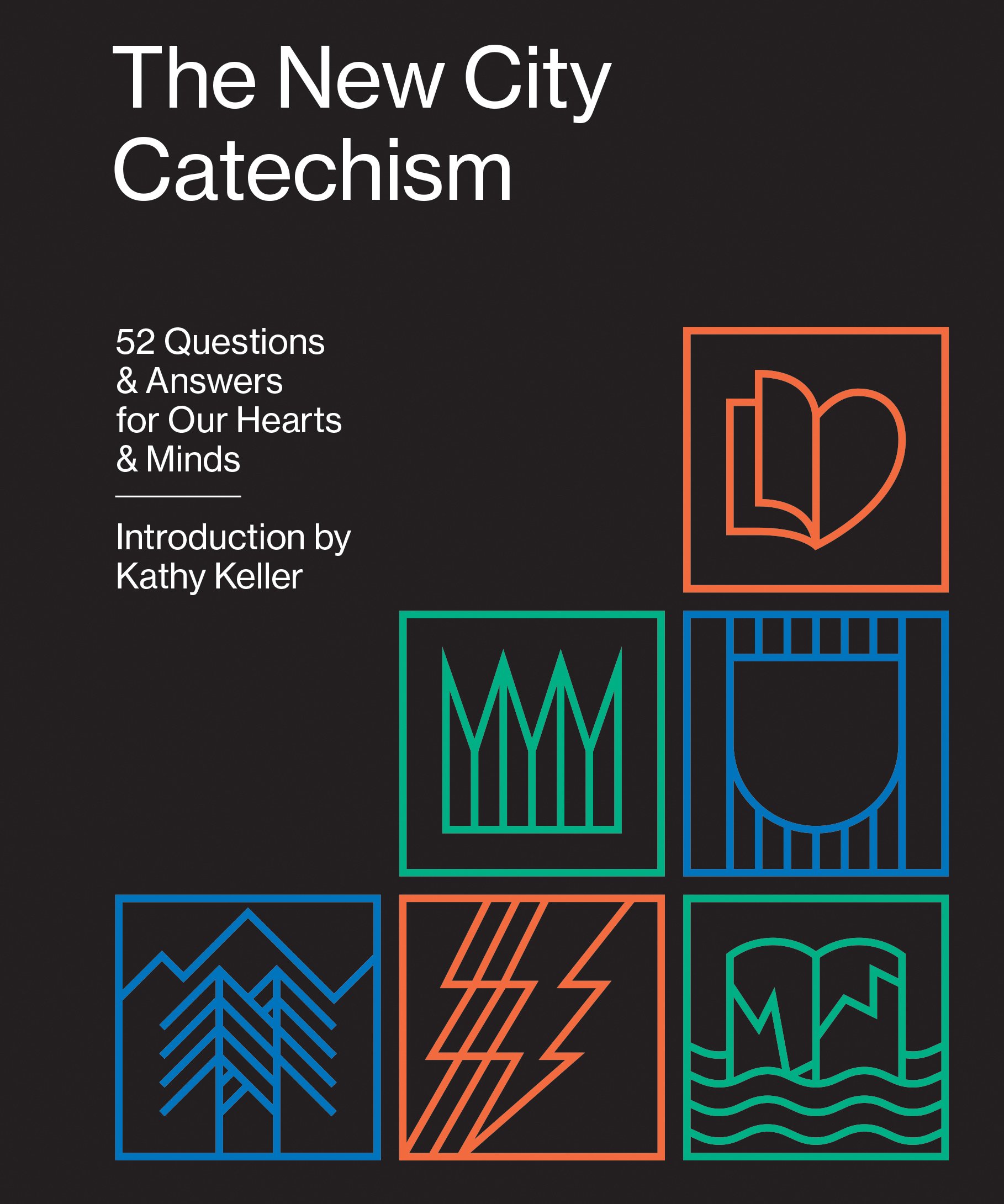 The New City Catechism: 52 Questions & Answers for our Hearts & Minds The Gospel Coalition with Introduction by Kathy Keller (Crossway) $7.99 This is a really cool little volume with classic evangelical truths portrayed in the once-popular Q & A format. Beth and I are members of the Presbyterian Church (USA) so we happily have a good handful of creedal statements in our Book of Confessions, including a newly added one about racism and human dignity that emerged from Reformed churches fighting apartheid. We crafted a fresh Q & A Catechism a few years ago but it didn’t quite take off; it indicated, though, the desire for contemporary Christians of a variety of types to return to this kind of easily memorized instruction. As Kathy Keller tells in her fascinating short introduction, even those working in hard, inner-city settings are finding success in teaching these pithy, theologically-sound answers. This is a very useful and timely idea and The New City Catechism is a very, very useful tool to use. Whether you are young or mature in your faith, whether you’ve studied a lot or not, this set of orthodox formulations – sounding a bit like the Heidelberg Catechism or some of the answers to the Shorter Westminster Catechism – is highly
The New City Catechism: 52 Questions & Answers for our Hearts & Minds The Gospel Coalition with Introduction by Kathy Keller (Crossway) $7.99 This is a really cool little volume with classic evangelical truths portrayed in the once-popular Q & A format. Beth and I are members of the Presbyterian Church (USA) so we happily have a good handful of creedal statements in our Book of Confessions, including a newly added one about racism and human dignity that emerged from Reformed churches fighting apartheid. We crafted a fresh Q & A Catechism a few years ago but it didn’t quite take off; it indicated, though, the desire for contemporary Christians of a variety of types to return to this kind of easily memorized instruction. As Kathy Keller tells in her fascinating short introduction, even those working in hard, inner-city settings are finding success in teaching these pithy, theologically-sound answers. This is a very useful and timely idea and The New City Catechism is a very, very useful tool to use. Whether you are young or mature in your faith, whether you’ve studied a lot or not, this set of orthodox formulations – sounding a bit like the Heidelberg Catechism or some of the answers to the Shorter Westminster Catechism – is highly 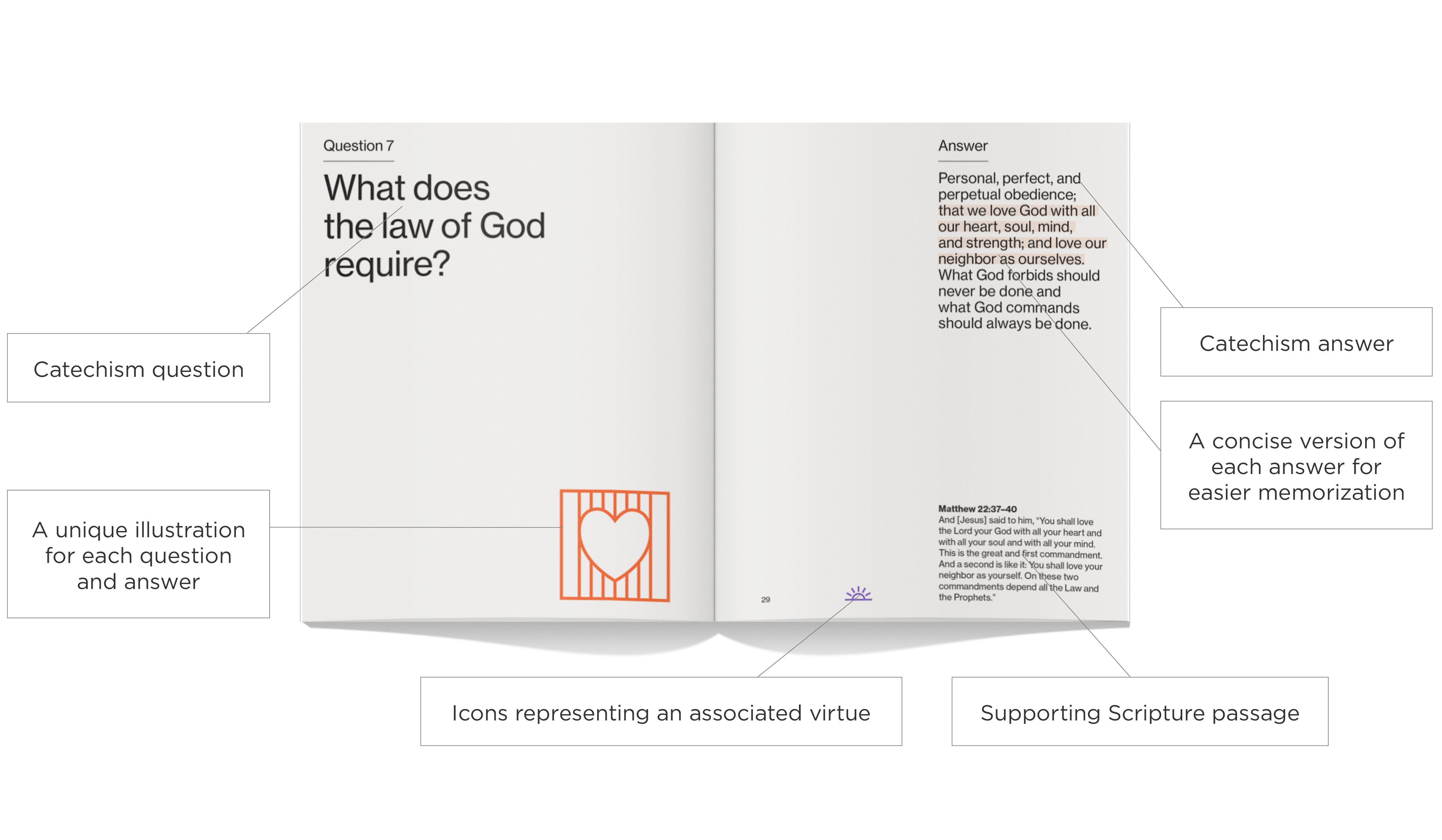 recommended.
recommended.
Here are some useful features of this I love and which I trust you will appreciate. First, it is a smallish size, but not tiny, designed with French flaps on the covers and glossy paper with some full color hints. On each two-page spread the question is on the left and the answer is on the right. There is a graphic under the question on the left to help visual learners. There is the large type answer on the right and another graphic icon, indicating a particular virtue (love, joy, forgiveness, trust, humility, hope and the like) evoked by that truth statement. While the answers are formal, they are in contemporary language, a little bit more concise than the older ones. There is a Bible text as well for each Q & A pair. This is really handsomely designed, cool to hold, easy to use, powerful to study. It isn’t all that young people or new Christians need, but it’s part of it. We’re excited about it and hope you’ll give it a try.
Here is a link to the publisher’s website that has a bunch of short videos about why they think it is important and how it can be used. Do come back here when your done..
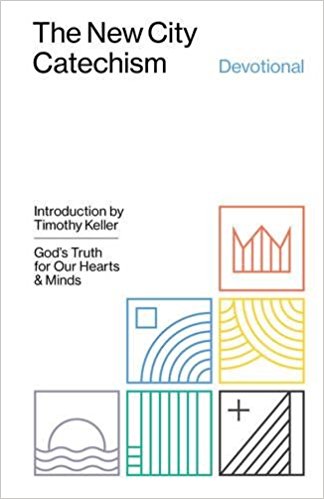 The New City Catechism Devotional: God’s Truth for our Hearts & Minds The Gospel Coalition, with Introduction by Timothy Keller (Crossway) $19.99 This hardback devotional has the same hip design and similar look – sans dust jacket, Helvetica type, two-color pages design – and is a perfect supplement to The New City Catechism. It has much to commend it. I might take issue with a thing or two, including the oddity that all the authors are men, but we’re eager to have our customers use it. Supplement it with stuff from your own tradition if you want, use it as conversation starters to determine if you agree with their formulations of the answers, but these are standard, mature, solid ruminations on these classic answers to key theological questions. If lack of theological awareness and superficiality of faith is a curse of our time, this could be an asset to rehabilitate weak knees and strengthen us all.
The New City Catechism Devotional: God’s Truth for our Hearts & Minds The Gospel Coalition, with Introduction by Timothy Keller (Crossway) $19.99 This hardback devotional has the same hip design and similar look – sans dust jacket, Helvetica type, two-color pages design – and is a perfect supplement to The New City Catechism. It has much to commend it. I might take issue with a thing or two, including the oddity that all the authors are men, but we’re eager to have our customers use it. Supplement it with stuff from your own tradition if you want, use it as conversation starters to determine if you agree with their formulations of the answers, but these are standard, mature, solid ruminations on these classic answers to key theological questions. If lack of theological awareness and superficiality of faith is a curse of our time, this could be an asset to rehabilitate weak knees and strengthen us all.
Here is what is special about this devotional: for each of the 52 entries there is a re-statement, in large type and two color ink, of the catechism question and answer. Then, there is a page or so reflection about that truth from an older voice within the mainstream of orthodox Christian tradition; you’ll hear from the likes of Athanasius and Augustine, Luther and Calvin and Cranmer, both Wesleys, Bunyan and Edwards, poet George Herbert and the great London preacher Charles Spurgeon. Following this older reflection on the matter, there is a contemporary writer (usually with affinity with TGC’s classic evangelical views) who weighs in. You’ll hear good stuff from Thabiti Anyabwile, Kevin DeYoung, Tim Keller, Juan Sanchez, R. Kent Hughes, Mika Edmondson, John Yates, David Bisgrove, and more. There is a Biblical text and a closing prayer for each entry. This is very nicely done, beautifully compiled.
As Gloria Furman says on the back cover:
This is perhaps the most concise and accessible resource I have read — the questions are immediately relevant in every culture, the language is easily understood or translatable, and the brilliance of the gospel radiates on every page.
Jen Wilkin says of it,
Harmonizing wisdom from voices both ancient and modern, this book invites us to methodically internalize the categories by which we understand our faith, reechoing the good news for a new generation of believers.
 The Sin of Certainty: Why God Desires Our Trust More Than Our “Correct” Beliefs Peter Enns (HarperOne) $15.99 This came out to much discussion a year ago and was just released in paperback last week so I can list it as “new” – at least new in paperback. I do not mean to be clever in listing this book after the important New City Catechism, although a cynic might think that I’m deconstructing the doctrinal Q & A approach in those books. Nope, I’m just balancing the two; Enns is quick to tell us that any reductionism that equates proper beliefs with real faith is not Biblically faithful. The strict Reformed theological tradition that he once was a part of left him with questions, fundamental things about what it means to trust God, what it means to truly know something, what the role of theological formulations play in faith formation. He’s a great storyteller and a passionate thinker who wants to call us to a more wholistic and deeper level sort of belief. It will be freeing for some and although not the final word, it is important.
The Sin of Certainty: Why God Desires Our Trust More Than Our “Correct” Beliefs Peter Enns (HarperOne) $15.99 This came out to much discussion a year ago and was just released in paperback last week so I can list it as “new” – at least new in paperback. I do not mean to be clever in listing this book after the important New City Catechism, although a cynic might think that I’m deconstructing the doctrinal Q & A approach in those books. Nope, I’m just balancing the two; Enns is quick to tell us that any reductionism that equates proper beliefs with real faith is not Biblically faithful. The strict Reformed theological tradition that he once was a part of left him with questions, fundamental things about what it means to trust God, what it means to truly know something, what the role of theological formulations play in faith formation. He’s a great storyteller and a passionate thinker who wants to call us to a more wholistic and deeper level sort of belief. It will be freeing for some and although not the final word, it is important.
Walt Brueggemann says that Enns offers a “puckish affirmation of the buoyant, sometimes outrageous, boundary-breaking capacity of biblical faith.” Sarah Bessy notes that Enns is “remarkable” because he is able to take big topics “and then make those very places a meeting place with a God who is bigger and wilder and more wonderful and trustworthy than we guessed.” I like this call to know a wild God a bit more deeply than just memorizing truth claims and answers, no matter how reasonable and Bible-based those answers are.
I was going to pitch this book as a “heart” compliment to the “mind” component offered in the New City Catechism. But that is way wrong: the Catechism has truth claims formulated well, but truly wants us to absorb them as heartfelt and live them with gusto. And Pete Enns does not at all suggest that faith is a matter of sentiment or feeling alone – he’s written a whole book here nearly about what philosophers called epistemology, after all, so there’s no “heart versus mind” dichotomy in either. While doctrinal books like the New City ones appeal to both heart and mind, that is mostly so because of the very stuff Enns explains here. Intellectual clarity or confidence is not the same as faith and our trust in God, while enhanced by good ideas, cannot be reduced to mere intellectual assent. With The Sin of Certainty we are set free to ask big questions, struggle with ambiguity and nuance and doubt and move forward in our spiritual journey in glad confidence that having all the answers isn’t necessary. And, in fact, as his own story shows, churches or faith traditions that over-emphasize such demands can cause needless confusion and harmful kinds of pride and all the negative stuff that goes with fundamentalisms of all sorts. Enns’s call to Biblical trust, he argues, offers a better way.
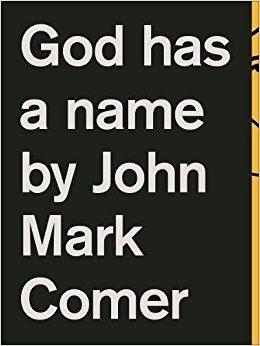 God Has a Name John Mark Comer (Zondervan) $16.99 I hope you recall how we’ve promoted Comer’s Garden City which is one of the coolest, most interesting, clarifying, and inspiring books we’ve seen in recent years. It has been a big seller at the Jubilee conference, for instance, and seems to resonate well with its intended audience (mostly younger, upbeat readers who want a big picture of the meaning of faith and service in the world.) This brand new one is paperback, but has some very hip design features, too (see that little orange slip on the inside edge of the cover?) Kudos to Zondervan for showing how books can look and feel just a little bit different these days with color and graphics and page weight…
God Has a Name John Mark Comer (Zondervan) $16.99 I hope you recall how we’ve promoted Comer’s Garden City which is one of the coolest, most interesting, clarifying, and inspiring books we’ve seen in recent years. It has been a big seller at the Jubilee conference, for instance, and seems to resonate well with its intended audience (mostly younger, upbeat readers who want a big picture of the meaning of faith and service in the world.) This brand new one is paperback, but has some very hip design features, too (see that little orange slip on the inside edge of the cover?) Kudos to Zondervan for showing how books can look and feel just a little bit different these days with color and graphics and page weight…
This book is simple to describe, although no short description can capture its insight, importance, or energy. It is about God. It is about God’s name as revealed in Exodus 34. It is about the whole Bible’s grand story, in a way, but focusing on God’s self-revelation to us, God’s nature and work in the world. It is about our ache for relationship, wondering why we “yet feel distant and disconnected from him. As if he’s more of an idea we believe in our head than a person we relate to.” It is conversational, simple to read (with lots of white space in his signature style) yet thoughtful and wise with very reliable Biblical scholarship behind his teaching.
Do you ever feel this gap he describes between you and God? Could it be, he asks, that some of our ideas about God, what we think about God and God’s character, are messed up?
 This book carries oodles of endorsing blurbs by all sorts of great thinkers and writers, pastors and worship leaders.
This book carries oodles of endorsing blurbs by all sorts of great thinkers and writers, pastors and worship leaders.
Here is what Evan Wicham, an artist and worship pastor and church planter has said:
This book is electrifying! I’m not sure who will find this book more earthshaking — the jaded skeptic or the long time religious! Either way, get this book.
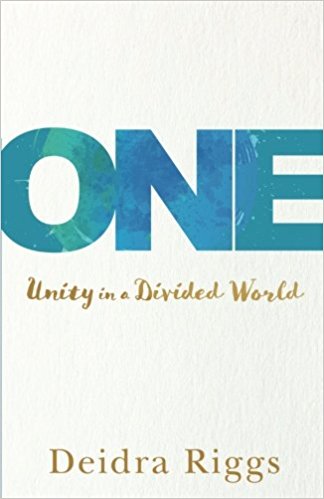 One: Unity in a Divided World Deidra Riggs (Baker Books) $14.99 I love this author – Deidra is a fine writer, a wise woman, an involved editor in a variety of important social media venues. She has worked at The High Calling blog, been a contributor to Dayspring’s (in)courage online community, and been a speaker for TEDx. She has been at the big Jubilee conference in Pittsburgh and has written a marvelous previous book called Every Little Thing: Making a Difference Right Where You Are which is a fabulous read that helps you, literally, do just what it promises. Although I suppose that one is mostly written for women, I really enjoyed it and found it wise and interesting and inspiring. Want to learn to live out your faith in little ways, day by day, taking up your mission in the world? She’s an ally and friend and understands your struggles.
One: Unity in a Divided World Deidra Riggs (Baker Books) $14.99 I love this author – Deidra is a fine writer, a wise woman, an involved editor in a variety of important social media venues. She has worked at The High Calling blog, been a contributor to Dayspring’s (in)courage online community, and been a speaker for TEDx. She has been at the big Jubilee conference in Pittsburgh and has written a marvelous previous book called Every Little Thing: Making a Difference Right Where You Are which is a fabulous read that helps you, literally, do just what it promises. Although I suppose that one is mostly written for women, I really enjoyed it and found it wise and interesting and inspiring. Want to learn to live out your faith in little ways, day by day, taking up your mission in the world? She’s an ally and friend and understands your struggles.
This one is very, very important, and I believe is central to any seriously Christian way of living. That is, in Jesus’s final words to his followers he insisted that unity – being one in him – was the final message. The whole world will know if they see us love one another. And, my goodness, how we have challenges that keep us apart these divided days.
 One is more than a book on civility, although it moves in that direction, helping us learn to be more gracious in our disagreements in our public life. It is more than a book about theological unity within various denominations and faith traditions, although it has plenty of insight about our essential unity in Christ and how we should seek ways to make that clearer. It is more than a book on racial reconciliation although, as a black woman, she has much to say about this topic. That it carries endorsements on the back from the vital Jo Saxton and the important John Perkins speaks volumes.
One is more than a book on civility, although it moves in that direction, helping us learn to be more gracious in our disagreements in our public life. It is more than a book about theological unity within various denominations and faith traditions, although it has plenty of insight about our essential unity in Christ and how we should seek ways to make that clearer. It is more than a book on racial reconciliation although, as a black woman, she has much to say about this topic. That it carries endorsements on the back from the vital Jo Saxton and the important John Perkins speaks volumes.
Here is what John Perkins says:
This book will challenge, excite, transform, and inspire everyone who dreams of an end to division and polarization -in the church, in our communities, in the work-place, in our homes, and in our very own souls.
As it says on the back cover of One: Unity in a Divided World, “Our world needs fewer walls and more bridges. Be a bridge builder.” To do this, we will have to grapple with questions of self-preservation, pride, and learn to be “secure in God’s inexhaustible love, allowing us to love others lavishly.” Perhaps after reading this, you will be inspired to be more proactive in this, taking first steps to be agents of reconciliation. As Deidra Riggs makes clear, this could be revolutionary, but it has to start in our own hearts. “Who is it hard for you to love?” she asks. Well, then.
And if that question isn’t urgent, I don’t know what is. Sure, we have other great books about how the gospel calls us to reconciliation. I highly recommend Reconciling All Things: A Christian Vision for Justice, Peace and Healing written by Chris Rice and Emmanuel Katongole (IVP; $17.00.) I think Lisa Sharon Harper’s The Very Good Gospel: How Everything Wrong Can Be Made Right (Waterbrook; $19.99) is a punchy and powerful primer and very highly recommended. Add Deidra Riggs’s pleasant book to the short list of useful resources on this key aspect of basic Christian living, a book that is full of stories, touching insights, gentle pushes, and a great study guide. This really is important.
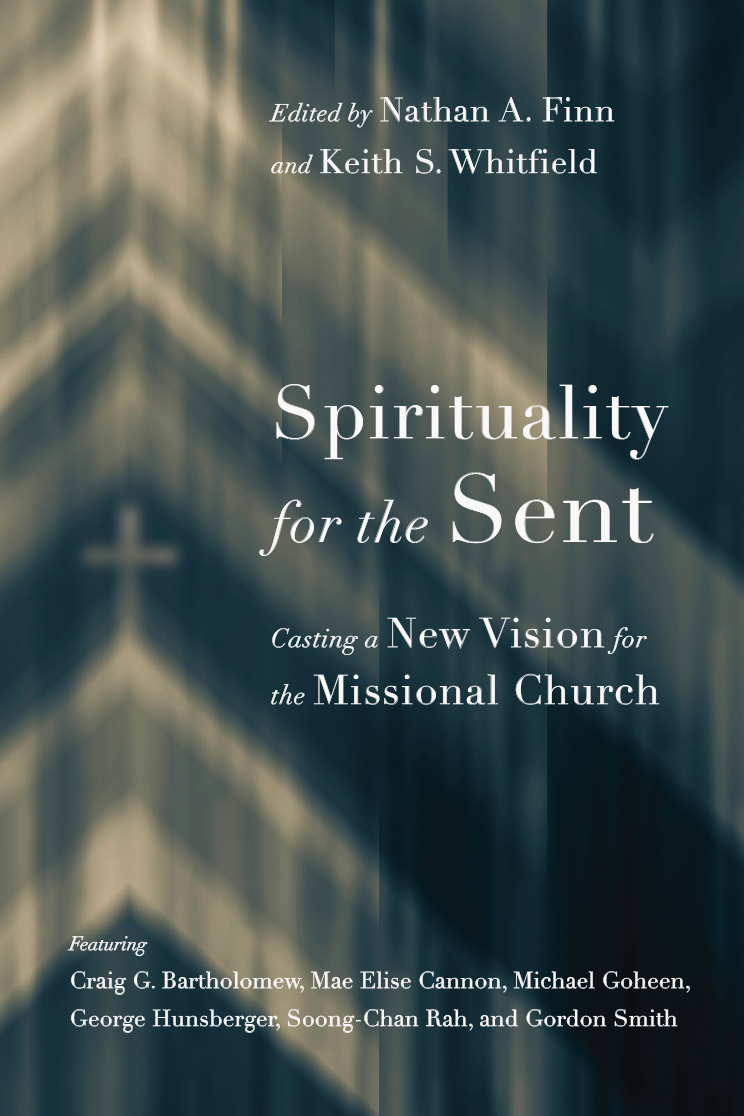 Spirituality for the Sent: Casting a New Vision for the Missional Church edited by Nathan A. Finn & Keith S. Whitfield (IVP Academic) $30.00 We wanted to include this amazing new book on this list even though it is a bit demanding and on a premier academic press. Still, it isn’t that hard, and I’m currently deep in reflection about it, reading it carefully, chapter by chapter. It is excellent.
Spirituality for the Sent: Casting a New Vision for the Missional Church edited by Nathan A. Finn & Keith S. Whitfield (IVP Academic) $30.00 We wanted to include this amazing new book on this list even though it is a bit demanding and on a premier academic press. Still, it isn’t that hard, and I’m currently deep in reflection about it, reading it carefully, chapter by chapter. It is excellent.
I suppose I don’t have to tell you that there has been in the last decade or more a recent phrase — missional — that suggests that North American post-Christian, modernized culture is itself a new mission field, and that we in the West have to re-calibrate our churches to be not just missionary (sending others to foreign fields) but missional. Our purpose should be to bear witness to the Lordship of Christ and his in-breaking Kingdom coming, and that such a missional project will take some evaluations and discernments about the nature of our culture so we can see how to best communicate the reality of the gospel in our new era in this place. Lesslie Newbigin’s Foolishness to the Greeks was a seminal book in this movement, and more and more, churches have gone beyond being seeker sensitive or outward focused to become true communities of the Kingdom and to become missional, equipping ordinary folks to live well as exiles in a post-Christian culture. We have seen vibrant, fabulously energetic and insightful books about this — see, just for instance, the recent To Alter Your World: Partnering with God to Rebirth Our Communities by Michael Frost and Christiana Rice — that are about both the missional church and a missional sort of risky discipleship. I don’t want to brag, and I certainly don’t suggest we have done it very well, but our bookstore promoted a missional sort of Kingdom vision before anybody coined that word. We’ve promoted reading about a wide-as-life wholistic discipleship, an in-bit-not-of-the-world local servanthood for 35 years. We used to say we existed to help people “read for the Kingdom!”
But get this: just as vibrant, missional-church, Kingdom-centered view of parish life pushed us into the world of real life, thinking deeply about the gospel and our culture, and living it out in whole-life discipleship, there has also been (thanks be to God) another movement trending in the last 30 years, a trend of deep interest in contemplative spirituality. Recall the importance of the likes of Richard Foster and Henri Nouwen and Tilden Edwards and Joyce Rupp and Marj Thompson and Ruth Haley Barton and others; courses on centering prayer and lay folks going on silent retreats and interest in spiritual formation programs are all on the rise. Books about spiritual disciplines continue to sell, and that field has blossomed well. One of our favorite publishers, InterVarsity Press, even started a spiritual formational imprint a decade ago called formatio, which has become one of the most reliable sources for good books on our spiritual practices.
I say all this just to exclaim how absolutely important this serious new book is, which asks how we should think about spiritual practices in light of a missional sort of church and a missional vision for discipleship. Or, but another way, how do we think about our Kingdom living and missional perspective in light of the call to be attentive to the deeps of our interior lives? The long introduction written by Finn and Whitfield in Spirituality for the Sent explores these two big trends, reminding us of much about how these trends have developed in recent years, and itself is very, very important. Just a few pages in and I knew I was going to love this book and that I’d feel called to let people know about its riches.
It may have been Darrell Guder who was at Princeton at the time who coined the “missional” word and he his comments about the book refer to how generative it will be, how important of a contribution it is, how other thinkers and writers should adopt it, how our churches should be talking about it, joining the discussion. He writes:
Finn and Whitfield’s Spirituality for the Sent is a welcome broadening and deepening of the missional church discussion… It should foster much discussion, encourage ever more provocative research, and embolden more contributions to the discussion.
Listen to Michael Frost, one of the great writers in this field, who has in mind practitioners, both those who are contemplatives and those who are activists:
In Spirituality for the Sent Finn and Whitfield have presented us with a framework for a spiritually rich and missionally engaged church… In their vision, spiritual formation is essential for missional effectiveness and sustainability. This book is generous enough in its scope to encourage contemplatives and activists alike.
This great book features contributions by Hearts & Minds favorites, too. Craig Bartholomew (whose recent book Contours of the Kuyperian Tradition I recently raved about) has a chapter on spirituality and the drama of Scripture. Tim Sheridan and Michael Goheen have a chapter on spirituality and cultural engagement. Soong-Chan Rah has a chapter entitled “Lament as Appropriate Missional Spirituality.” Mae Elise Cannon’s chapter is about missional spirituality and justice — yes! The great Gordon Smith (whose most recent fully amazing book is called Evangelical, Sacramental, and Pentecostal: Why the Church Should Be All Three) shows how spirituality helps us worship well (and vice versa.) There are authors with whom I’m less familiar; Gary Tyra’s chapter on Pauline spirituality is excellent and Diane Chandler’s on “Godly Love” as the primary spiritual virtue is beautiful. There is a chapter on congregational life, too – bringing to ordinary church life a vision of being both missional and spiritual. This collection has plenty of good stuff for nearly anyone about nurturing a deeper missional spirituality and will reward readers for months and years to come. (Two authors who have worked really well in this area that I wished had been included are Roger Helland & Leonard Hjalmarson whose 2011 IVP book Missional Spirituality: Embodying God’s Love from the Inside Out was groundbreaking.)
Here is a little heads up: I am positive that Spirituality for the Sent: Casting a New Vision for the Missional Church will win a Hearts & Minds Best Book of 2017 award, so why not just buy it now? We will tout this, as I hope others will, as it breaks significant ground, offers sweet insights, and, although a bit meaty, is excellent for anyone wanting to relate faith and life and worship and work and deeper spirituality and wholistic witness in the world God loves. Highly recommended.
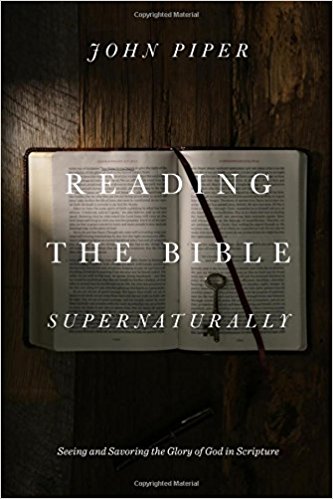 Reading the Bible Supernaturally: Seeing and Savoring the Glory of God in Scripture John Piper (Crossway) $32.99 Pastor Piper has retired from his position at Bethlehem Baptist but his writing career has perhaps reached a new zenith. He has over the years given us major works such as his hallmark Desiring God, Future Grace, and The Pleasures of God; he has written smaller volumes of deeply moving, passionate preaching in books like Seeking and Savoring Christ. He has done scholarly work on Jesus’s many demands (not enough have read his Love Your Enemies: Jesus’ Love Command in the Synoptic Gospels and the Early Christian Paraenesis)
Reading the Bible Supernaturally: Seeing and Savoring the Glory of God in Scripture John Piper (Crossway) $32.99 Pastor Piper has retired from his position at Bethlehem Baptist but his writing career has perhaps reached a new zenith. He has over the years given us major works such as his hallmark Desiring God, Future Grace, and The Pleasures of God; he has written smaller volumes of deeply moving, passionate preaching in books like Seeking and Savoring Christ. He has done scholarly work on Jesus’s many demands (not enough have read his Love Your Enemies: Jesus’ Love Command in the Synoptic Gospels and the Early Christian Paraenesis)
and he has fueled a movement of God-drenched, neighbor-loving passion for mission; he has written about social issues (most interestingly, see his declaration that racism is a sin, in Bloodlines: Race, Cross, and the Christian.) His call to have our lives count for God’s Kingdom found in books like Don’t Waste Your Life have affected tens of thousands. His book Think reminds us of how to think faithfully and Biblically. He has written poetry, and written books about writing. He has done a series of short biographies that are fantastic called “The Swans Are Not Silent” — he loves teaching about the past. He pays attention to the Scriptures and he applies faith with a God-centeredness that alludes to his hero Jonathan Edwards and a joy that reminds one of his beloved C.S. Lewis.
I believe he is mistaken about some things, and that he perhaps is a bit too self-confident at times, but he has been important in my life, and I’m grateful to have heard him speak a few times and to have met him and his wife. Of course we stock most of his many books.
So I am eager to read this new one, which I’ve only skimmed for a few moments. At well over 425 pages it is a major volume; it even feels heavy in the hand and has tons of chapters and sub-chapters and sections and is laden with counsel both profound and practical.
There are other books that are more open minded about what the Bible is and how to get the most from your reading of it in non-literal ways. Of course. But this one, too, should be studied, even if one holds a view that different than Piper’s. I am sure is rooted in classic, serious study — oh, if other pastors took the life of the mind as seriously as he does — so don’t be put off by the “supernaturally” in the title. For instance, there is one section called “God Forbid That We Despise His Natural Gifts” by which he means that there is no tension between a “natural” and a “supernatural” reading. We are to use, as good gifts that they are, the minds God gives us, the gifts of thinking, of logic, of appreciating poetry and beauty and how to discern the ways metaphors work and so forth. He has a major section with nearly a dozen chapters called “The Natural Act of Reading the Bible Supernaturally.”
The first sections are passionate — there are powerful teachings about “white-hot worship” and “savoring Christ” and three parts of “Reading to See Supreme Worth and Beauty” and three more chapters on “Reading to Be Transformed.” One chapter title that caught my eye is called “Reading Toward the Consummation.” This is serious stuff, and while it is intense, it is not abstract.
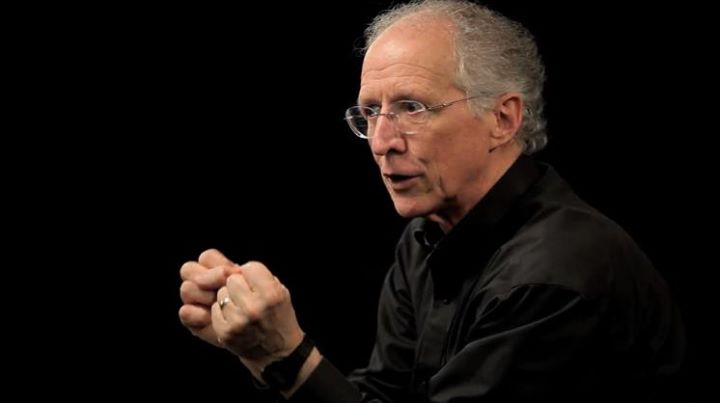 And some chapters are just really, really wise: one is entitled “Humility Throws Open a Thousand Windows.” There are whole chapters about “querying” the text, about the author’s intent, and about sound methods of exegesis. I suspect that there is something here for nearly everyone (and nearly everyone who has considered any of this material before will find something with which they will disagree.) But who couldn’t benefit from
And some chapters are just really, really wise: one is entitled “Humility Throws Open a Thousand Windows.” There are whole chapters about “querying” the text, about the author’s intent, and about sound methods of exegesis. I suspect that there is something here for nearly everyone (and nearly everyone who has considered any of this material before will find something with which they will disagree.) But who couldn’t benefit from 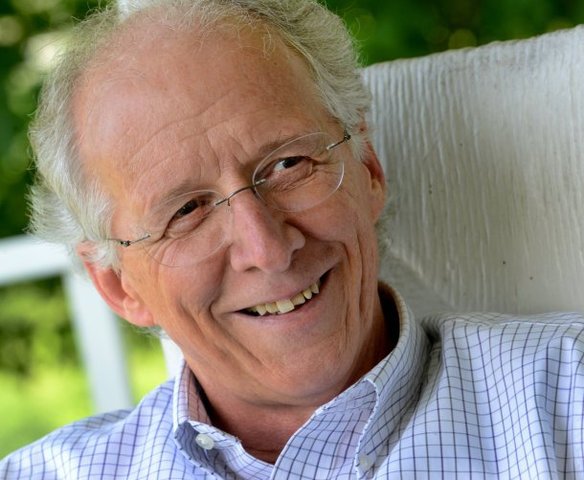 this kind of jolt, reminding us to pray for God’s blessing as we read, to grapple with the very holiness of the text, to dig and dig and, as one of my hero’s, Calvin Seerveld, put it, “take hold of God and pull.” (And to live with, as Piper himself says “paradoxes, pleasures, and the transformed life.” Reading this all will be a major project, but that’s okay — one doesn’t have to read it all at once — as Piper reminds us, “The Bible beckons us to look for a long time.” And, yes, good Baptist that he is, he has a few proof-texts.
this kind of jolt, reminding us to pray for God’s blessing as we read, to grapple with the very holiness of the text, to dig and dig and, as one of my hero’s, Calvin Seerveld, put it, “take hold of God and pull.” (And to live with, as Piper himself says “paradoxes, pleasures, and the transformed life.” Reading this all will be a major project, but that’s okay — one doesn’t have to read it all at once — as Piper reminds us, “The Bible beckons us to look for a long time.” And, yes, good Baptist that he is, he has a few proof-texts.
Here are some of the conservative, evangelical leaders who are speaking of this book in glowing terms. Even if you are not a conservative or an evangelical, you cannot afford to miss this kind of stuff:
‘Not many books should be recommended for both beginning Bible readers and mature Bible readers, but this is one of them. Utilizing brief and pointed expositions of often overlooked Bible verses, John Piper helpfully explains why we should be reading the Bible, the work of the Spirit in our Bible reading, and the fundamental skills and habits of faithful Bible reading. I cannot imagine a serious Christian who would not benefit from a thoughtful reading of this book.”
–D. A. Carson, Research Professor of New Testament, Trinity Evangelical Divinity School; Cofounder, The Gospel Coalition
“I have been reading the Bible daily for thirty-five years. Reading the Bible Supernaturally challenged my motives, effort, and enjoyment. I doubt I will read the Scriptures the same way again. I look forward to deeper and more wonderful times alone in the Word in the days ahead. This book is a must read for anyone wanting to take Bible study seriously.”
–Francis Chan, New York Times best-selling author, Crazy Love and Forgotten God
“Stunning. Profound. Powerful. Reading the Bible Supernaturally will move you to captivated and awestruck worship at the Divine’s plan for his Word as an instrument to magnify his unrivaled glory. Seeing and savoring the God of the Scriptures is an extraordinarily high calling every believer must pursue, and no man can move us to that place quite like John Piper. This book, accessibly written and weighty in content, is so much more than a manual or study guide to the Scriptures. Rather, it’s an invitation to the experience God intended we have with his Word–an experience that is Spirit dependent, faith building, and worship inciting.”
–Louie Giglio, Pastor, Passion City Church, Atlanta; Founder, Passion Conferences; author, The Comeback
“The seemingly mundane topic of reading the Bible ushers us into a world of supernatural grace for sinners. With constant reference to the Holy Scriptures, John Piper shows us how to beware the leaven of the Pharisees and to read by the light of Christ. Yet Piper commends no passive mysticism, but studious labor over the best of books; he is thorough, practical, and engaging throughout. Take up and read!”
–Joel R. Beeke, president, Puritan Reformed Theological Seminary, Grand Rapids, Michigan
“Reading the Bible Supernaturally reminds us why we cannot rest until every person on earth has access to the Bible in their own tongue. Tribes, languages, peoples, and nations are perishing without access to, or opportunity to know, this glorious God through this glorious book. John Piper stokes the urgency of our calling as the church of Jesus Christ to deepen our appreciation for the Word that God uses toward a missional end–his global and eternal glory.”
–Michael Oh, Global Executive Director, The Lausanne Movement
“Reading the Bible Supernaturally is a thorough and compelling wake-up call to lethargic, passive, resistant, mechanical Bible readers (which is all of us at one point or another) to become hungry, eager, inquisitive, aggressively observant miners for the treasure in the text–fully expectant that God will bring us from death to life, from foolishness to wisdom, from damning despair to glorious hope through his Word.”
–Nancy Guthrie, Bible teacher; author, Hearing Jesus Speak into Your Sorrow
“If you disconnect the Bible from God’s glory, you lose your grip on both. What terrible things we hear people say about each of them, taken in isolation. John Piper puts them together, and finds himself preaching an astonishingly high doctrine of Scripture, right alongside an intimately experiential doctrine of God’s glory. Reading the Bible Supernaturally is not just one of the helpful activities that make up the Christian life. Kept in proper context, seen in full perspective, and received in wide-awake recognition of the living voice of the triune God, reading the Bible is the central act of Christian existence. This book, a kind of extended Christian hedonist gloss on Psalm 119, is an invitation to the miracle of Bible reading.”
–Fred Sanders, Professor of Theology, Torrey Honors Institute, Biola University; author, The Deep Things of God: How the Trinity Changes Everything
“No book has inspired me to approach Scripture with as much anticipation as Reading the Bible Supernaturally. Read this book at your own risk, for it will ignite your devotional life. You will find yourself actively hunting for treasure in the Bible, looking carefully at each passage, praying and trusting that God himself will open your eyes to see and savor his glory. Don’t let the length of this book fool you; it is clear, accessible, and inspiring. In fact, it is the most practical, passionate, and motivating book on reading the Bible I have ever read. Read it. Apply it. Test it. It will transform your approach to God’s Word.”
–Vaneetha Rendall Risner, author, The Scars That Have Shaped Me
BookNotes
DISCOUNT
ANY ITEM MENTIONED
10% off
order here
takes you to the secure Hearts & Minds order form page
just tell us what you want
inquire here
if you have questions or need more information
just ask us what you want to know
Hearts & Minds 234 East Main Street Dallastown, PA 17313
717-246-3333
